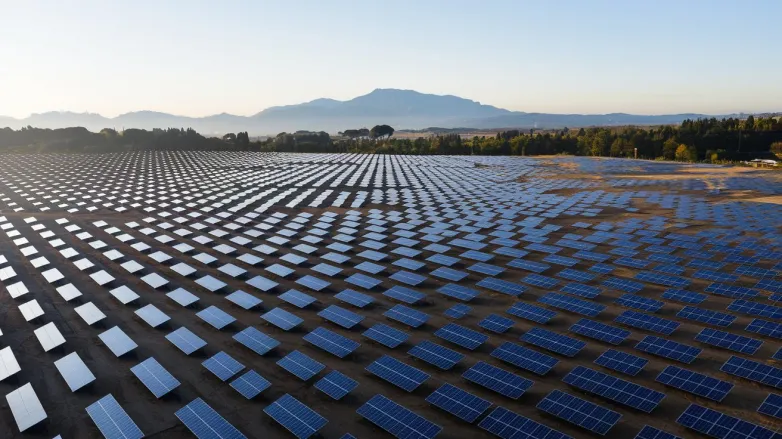European Energy Sells Half of Latvian Solar Project
- European Energy and Sampension unite to boost Latvia's solar capacity with a 148MW park, advancing the nation's renewable goals by 2030. A promising partnership in sustainable energy!

European Energy has sold a 50% stake in its Latvian solar park project to Sampension, which is currently under construction and set for completion in late 2025. The project will possess a capacity of 148MW, contributing significantly to Latvia's goal of achieving 57% of its electricity consumption from renewable sources by 2030. With only 500 MW of solar capacity in 2023, this development aims to enhance the country's renewable energy production.
Thorvald Spanggaard of European Energy expressed enthusiasm for collaborating on Latvia’s largest solar park, while Sampension's Torbjørn Lange highlighted the project as a strong investment that complements their existing portfolio. The two companies have a history of successful partnerships in various renewable energy projects across Scandinavia and are open to further collaborations in solar and wind energy investments.
How will the Latvian solar park project impact the country's renewable energy goals?
The Latvian solar park project is set to make a significant impact on the country’s renewable energy goals. Here are some key points detailing its implications:
- Enhanced Renewable Capacity: With a capacity of 148 MW, the solar park will significantly bolster Latvia’s renewable energy generation as the country currently has only 500 MW of solar capacity. This addition is crucial for meeting the growing energy demands within the context of sustainable development.
- Contribution to National Targets: The project is pivotal in helping Latvia achieve its goal of sourcing 57% of its electricity from renewable sources by 2030. This aligns with broader EU objectives for renewable energy and reflects Latvia's commitment to climate change mitigation.
- Job Creation: The construction and operation of the solar park will create numerous jobs in the region, contributing to local economic development. This includes positions in construction, maintenance, and operations, fostering skills development in the green energy sector.
- Attraction of Investment: The partnership between European Energy and Sampension highlights the financial viability and attractiveness of renewable energy projects in Latvia, encouraging further investments in the sector. This may stimulate additional projects, enhancing the country’s renewable infrastructure.
- Technological Advancements: The project may serve as a showcase for advanced solar technologies and innovative practices in renewable energy development. This could promote knowledge transfer and encourage further research and development in Latvia's renewable sector.
- Environmental Impact: Increasing solar power generation will reduce Latvia's reliance on fossil fuels, contributing to lower greenhouse gas emissions. The transition to cleaner energy sources supports the country's efforts to comply with international climate agreements.
- Energy Security: By increasing the share of domestically produced renewable energy, Latvia can enhance its energy independence and resilience against external energy market fluctuations. This is crucial for national security and long-term sustainability.
- Community Engagement: The solar park project provides an opportunity for community involvement in the renewable energy transition. Engaging local communities can foster public support for renewable initiatives and increase awareness of sustainable practices.
- Potential for Future Projects: The successful development and operation of this solar park could act as a catalyst for additional renewable energy projects in Latvia, including wind farms and energy storage solutions, paving the way for a more diversified energy portfolio.
- EU Funding and Support: Latvia's solar park initiative may attract funding from EU programs focused on renewable energy development, providing financial resources that can be utilized in future projects and infrastructure upgrades.
- Public Awareness and Education: The project’s visibility will likely raise public awareness regarding the importance of renewable energy and its role in achieving sustainability goals, potentially influencing public behavior and policy support for green energy initiatives.
In conclusion, the Latvian solar park project is poised to play a transformative role in advancing the country’s renewable energy objectives while also contributing to economic growth, environmental sustainability, and energy security.
Also read

